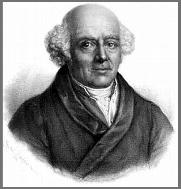
What is Homeopathy?
In 1796 Samuel Hahnemann, a physician from Leipzig in his forties, experienced in his own body the effects of quinine, a drug already known in the seventeenth century. He realized with surprise that in a healthy individual, the quinine caused symptoms similar to those suffered by a patient.
Thus was born what Hahnemann himself defined as "homeopathy", i.e. the treatment of diseases by the principle of similars, whereas conventional medicines are classified as "allopathic" as they fight against the disease -in most cases- by a process opposed to the symptoms.
The three principles on which homeopathy is based on are:
SIMILARITY - A substance that causes in a healthy individual a set of symptoms, can cure them in an individual patient. The greater the similarity the greater the chance of a cure.
INDIVIDUALIZATION - The patient and his disease, form a unique combination that will depend on hereditary history, living conditions, habitat, customs, climate, etc..
For the first time the patient is seen with an holistic concept that integrates physical, and emotional energy, the human being in its broadest context.
INFINITESIMAL - If ponderal doses of a substance cause a set of symptoms in a healthy individual, infinitesimal doses of the same remedy will make them disappear in the patient.
What are the characteristics that make homeopathy such an interesting therapeutic alternative?
1) it is a medicine without any harmful effects.
2) the individual is considered on a total basis (holistic concept). In homeopathy there are no "diseases." There are only "ill" individuals with symptoms that are taken into account in order to prescribe the correct remedy.
3) the diagnosis is clinical and therapeutic. No searching for the name of the disease to treat it with a generical remedy common to all people diagnosed with the same disease. The remedy is sought to cure the symptoms that a specific patient presents in the most effective, fast and permanent way possible for that individual. 4) homeopathic remedies are found today in almost all pharmacies with prices below the usual allopathic drugs.
5) homeopathic remedies are not incompatible with any other medical treatment that is carried out on the patient.
6) homeopathy can treat the symptoms associated with diseases such as asthma, bronchitis, digestive disorders, alopecia, joint pain, fevers, headaches, rheumatism, arthritis, allergies or circulation problems to name but a few.
7) in the mental sphere homeopathy treats problems such as phobias, depression, anxiety, insomnia and stress among others.
8) homeopathic remedies can be administered to pregnant women and babies without risk.
9) children especially benefit from this type of medicine because their body is still very pure and homeopathic substances are also produced with optimum purity.
10) mind and body are inextricably linked, so understanding the human psychological part is fundamental in the relationship between therapist and patient.
| |
